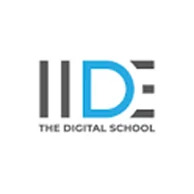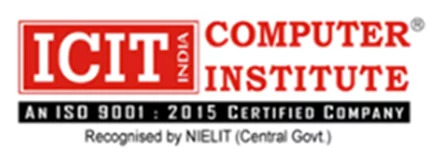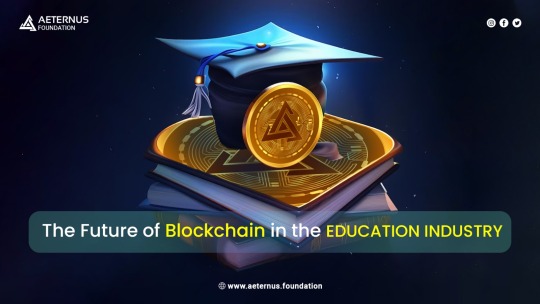#Automation Course Fee
Explore tagged Tumblr posts
Text

Prices vary by city, institute, course content, and delivery mode. Always compare reviews, trainers, and curriculum before enrolling.
1 note
·
View note
Text
Yesterday [April 30, 2024], a bipartisan collection of US Senators introduced the Fans First Act, which would help address flaws in the current live event ticketing system by increasing transparency in ticket sales, and protecting consumers from fake or dramatically overpriced tickets.
Today, the artists and Congressmen allege, buying a ticket to a concert or sporting event requires negotiating a minefield of predatory practices, such as speculative ticket buying and the use of automated programs to buy large numbers of tickets for resale at inflated prices.
The legislation would ban such practices, and include provisions for guaranteed refunds in the event of a cancellation.
The political campaign organizers, calling themselves “Fix the Tix” write that included among the supporters of the legislation is a coalition of live event industry organizations and professionals, who have formed to advocate on behalf of concertgoers.
This includes a steering committee led by Eventbrite [Note: lol, I'm assuming Eventbrite just signed on to undermine Ticketmaster and for PR purposes] and the National Independent Value Association that’s supported by dozens of artistic unions, independent ticket sellers, and of course, over 250 artists and bands, including Billie Eilish, Dave Matthews, Cyndi Lauper, Lorde, Sia, Train, Fall Out Boy, Green Day, and hundreds more which you can read here.
“Buying a ticket to see your favorite artist or team is out of reach for too many Americans,” said Senator Amy Klobuchar (D-MN).
“Bots, hidden fees, and predatory practices are hurting consumers whether they want to catch a home game, an up-and-coming artist, or a major headliner like Taylor Swift or Bad Bunny. From ensuring fans get refunds for canceled shows to banning speculative ticket sales, this bipartisan legislation will improve the ticketing experience.”
Senators Marsha Blackburn (R-TN), Ben Ray Luján (D-NM), Roger Wicker (R-MS), John Cornyn (R-TX) and Peter Welch (D-VT) also signed on to the Fan First Act.
In the House, parallel legislation was just passed through committee 45-0.
[Note: That's a really good sign. That kind of bipartisan support is basically unheard of these days, and rare even before that. This is strong enough that it's half the reason I'm posting this article - normally I wait until bills are passed, but this plus parallel legislation with such bipartisan cosponsors in the senate makes me think there's a very real chance this will pass and become law by the end of 2024.]
“We would like to thank our colleagues, both on and off committee, for their collaboration. This bipartisan achievement is the result of months and years of hard work by Members on both sides of the aisle,” said the chairs and subchairs of the Committee on Energy and Commerce.
“Our committee will continue to lead the way on this effort as we further our work to bring this solution to the House floor.”
“The relationship between artist and fan, which forms the backbone of the entire music industry, is severed,” the artists write. “When predatory resellers scoop up face value tickets in order to resell them at inflated prices on secondary markets, artists lose the ability to connect with their fans who can’t afford to attend.”
-via Good News Network, May 1, 2024
#music#concert#performance#live music#live performance#music industry#ticketmaster#eventbrite#concerts#concert tickets#united states#legislation#us politics#good news#hope
474 notes
·
View notes
Text
Should I go to Etsy ?
Alright, here’s the real tea. Should I go full Etsy witch and set up shop for my tarot readings? Or am I better off keeping things as they are—intimate, personal, and powered by vibes (and, let’s be real, y’all’s support)? I need your opinions, because this decision is giving “Mercury retrograde indecisiveness.”
So here’s the situation. I’ve been offering tarot readings for a while now. If you’ve booked with me, you know the deal: my spreads are designed for shifters, seekers, and anyone trying to untangle their life (or their journey to a Desired Reality). My readings aren’t fluff—they’re honest, intuitive, and grounded in connection. Right now, you choose a spread, donate through my Ko-Fi, and I channel your energy into a reading that actually resonates.
It’s a system that works. But... would it work better on Etsy? That’s the question.
The Etsy Allure
I mean, let’s be real. Etsy is the place people go when they’re looking for metaphysical services. It’s already packed with folks shopping for tarot readings, shifting tools, and everything spiritual. Having a shop there could bring me more visibility—no more relying on reblogs, word of mouth, or people randomly stumbling onto my Tumblr posts. Instead, I’d be right there in the marketplace, where people are already in the mindset to buy what I’m offering.
And then there’s the professionalism factor. Etsy has a certain polish to it. A storefront there might make my readings feel more “official,” like I’m running a legit business instead of just vibing in my little internet corner. That could attract new clients who might not have trusted a DM-based operation. Plus, Etsy’s tools—automated receipts, order tracking, reviews—are kind of appealing. They’d streamline things and save me some mental bandwidth.
But here’s the thing: it costs $14 to even open an Etsy shop. Fourteen bucks. That might not sound like a lot, but for me, a broke college student whose financial situation is as real as Bigfoot sightings, it’s a hurdle. I literally don’t have that right now. If I want to make this leap, I’d need to sell a reading just to afford the entry fee. Like... anyone want to sponsor my little tarot empire? Buy a reading and help me get this shop off the ground?
The Not-So-Glamorous Side of Etsy
Of course, it’s not all sunshine and crystals. Etsy takes a lot of fees. There’s a listing fee for every service you post, transaction fees for every sale, and advertising fees if you want to promote your shop. Those costs add up, and they could eat into the already small profits I’m making.
And then there’s the energy of it all. I love that my current system feels personal. When you book a reading, it’s a one-on-one connection. I get to learn about your journey, your struggles, and your hopes. It’s intimate. Would Etsy keep that vibe intact, or would it make things feel... transactional? Like, would it still feel magical, or would it start feeling like I’m just running another side hustle in the gig economy?
Also, let’s not ignore the fact that Etsy has a lot of gimmicky energy in its metaphysical section. For every genuine reader, there’s someone selling $5 “instant soulmate spells” or “manifest money overnight” nonsense. Do I really want to throw myself into a pool with that energy? Would it cheapen my work to be associated with that kind of marketplace?
Practical Concerns
The other big question is: would I even want the potential flood of clients Etsy could bring? Tarot readings take time, focus, and energy. They’re not something I can rush. If the Etsy algorithm decides to favor me (unlikely, but let’s dream big), would I get overwhelmed? Would I burn out trying to keep up with demand? I’m already balancing college, life, and this side hustle. Would scaling up make me miserable? Because if there’s one thing I know, it’s that I’m not willing to compromise the quality of my readings just to churn out more orders.
Where Do You Come In?
This is where I need you—my community, my people. You’ve supported me so far, trusted me with your energy, and helped me grow into the reader I am today. So I’m asking: what do you think? Is Etsy the right move? Would it help me reach more people who need my work, or would it just complicate things? Have you ever bought a tarot reading on Etsy? Did it feel magical, or did it feel like you were just adding something to your cart?
And if you’re a reader yourself, spill the tea. Do you have an Etsy shop? Is it worth it, or do you regret it? What’s the reality of running a spiritual business on that platform?
Oh, and one last thing: if you do think I should open an Etsy shop but feel like I’m being held back by that $14 fee (spoiler: I am), here’s your chance to make it happen. If even one of you books a reading with me, I could use that money to finally set up my shop. So, if you’ve been on the fence about getting a reading, now’s the perfect time. Not only will you get some cosmic guidance, but you’ll also be helping me take this next big step. Win-win, right?
Anyway, let me know your thoughts. I’m all ears, and I really do value your input. Should I take the Etsy leap, or am I better off keeping things right here, cozy and low-key? Let’s chat.
#reality shifting#shiftblr#shifting#shifting community#desired reality#shifters#shifting realities#reality shifter#shifting antis dni#reality shift#shifting reality#current reality#shifting stories#shifting blog#shifting motivation#shiftinconsciousness#shifter#reality shifting community#shifting memes
10 notes
·
View notes
Text
FBA Academy Review
What is the FBA Academy?
The FBA Academy is David Zalenski’s Amazon private label training course and a part of EcomHub. The best feature of this FBA course is product validation. David’s team will look into your product idea and let you know if it’s the right path to take. This is incredibly valuable, especially for a beginner. You will also learn EcomHub’s trademarked Rank and Bank system, which teaches you how to launch a product and rank it to the front page of Amazon.
The training includes 7 hours of videos spread across 20 modules. Purchase of the course gets you lifetime access. Bonus materials include spreadsheets, templates, and David’s copyrighted strategy for creating paid traffic- the PPC Spyder Launch. You’ll also get 3 live coaching calls per week with the team/David, and access to a private Facebook group for the rest of your life.
Who is David Zaleski, Creator of FBA Academy?
David Zaleski is a 7-figure ecommerce seller who built a $5 million Amazon business in 5 years with only $4800 of Amazon start-up costs .
David started selling products online just before high school when he was 14. He flipped Alibaba products on eBay. 4 years later, at 18, he started his first Amazon business. Within 6 years, David grew that business to $9 million in sales.
Besides selling on Amazon, David had a podcast and YouTube channel. He has not updated either of these outlets lately. Currently, he is developing EcomHub into an Amazon “studio” where any level of Amazon seller can come for specific services. He also closely runs his Amazon automation agency, the FBA Academy Done-For-You program, closely with this private label course.
The FBA Academy Business Model: What is Amazon Private Label?
Amazon private label involves ordering a generic, brandless product and putting your own logo on it. You may add other variations to stand out from competitors, like upgrades, color options, or bundled products. Then, Amazon handles the shipping and handling and takes a cut off your profits. Therefore, it is one of the most expensive Amazon FBA business models to start. Besides FBA fees, you will also have to pay for brand and logo design, sourcing products, testing products, and running Amazon PPC campaigns to drive traffic.
But, private label also has higher profit margins- often up to 40%. Other business models, like Amazon dropshipping , have much smaller margins around 10-30%.
If you decide to follow an Amazon FBA private label business model, plan to spend $15K-$20K in startup costs alone, besides any course you decide to take.
What is the Difference Between Amazon FBA and Amazon Dropshipping?
With Amazon FBA private label, you sell your own products. But, Amazon dropshipping involves selling other brands’ products in your store. It’s also FBM (Fulfilled by Merchant). This means your supplier ships the product directly to the customer instead of an Amazon warehouse. You can also dropship off of Amazon, using other platforms like Shopify and/or eBay. Amazon dropshipping has the lowest of all Amazon business model profit margins- between 10-30%, while private label earns around 40%.
When Does the FBA Academy Start and Finish?
The FBA Academy is self-paced and starts at the time of your purchase. You have lifetime access to all its features, including weekly coach support calls, and can revisit course content.
What Modules are in the FBA Academy Program?
1: Welcome This first module is purely introductory. Learn about FBA, upcoming course content, and general tips to set the scene. You will also set up your Amazon Seller Central account.
2: Search For Your Product Module 2 talks about not only finding a product but also choosing a niche, branding your company, and marketing it to stand apart from competitors. David will also cover Amazon FBA fees, which may make you change your mind about this online business entirely.
3: Source David teaches you multiple strategies to implement when finding suppliers. He will also give valuable tips for communicating with suppliers from other countries, specifically China. Finally, learn about product codes and how to manage them efficiently for your store.
4: Launching Your Product This module covers product launch and specific strategies to optimize your product listing, like organic keyword research and customer coupons.
5: Rank and Bank (Trademarked Strategy) Here, you’ll hear an overview of how David promotes products while using Amazon as a search engine rather than an online store. If you can organically rank your products, you’ll save on Amazon advertising costs.
6: Listing Your Product Along the Rank and Bank system, there are many strategies to implement to bring your listing to the top of Amazon (and win the Amazon Buy Box). This module will help you with product pricing, professional product photography, and more.
7: Setting up Rank and Bank This module includes information on how to connect a product Facebook page (fanpage) with Manychat. David uses this strategy to bring in more customers and provide exemplary customer service.
8: More Information on Manychat This module explains how to connect with customers and how to continue the flow to a purchase.
9, 10, 11: Rank and Bank Info It’s great to see that David covers Rank and Bank in multiple modules, so that you can get the full picture. Since it’s trademarked, you won’t find this exact information anywhere else.
12: Facebook Ads Rather than generating a Facebook ad for your Amazon page, these ads will help you get customers to your Facebook page, and then onto your Manychat.
13 & 14: FAQ Here, you’ll get the answers to some frequently asked questions and receive bonus materials. FAQs include questions for international sellers.
15: Scaling Your Business After seeing success on your Amazon store, take your business further with this module. Topics include troubleshooting stock issues, reporting listing hijackers, sales tax, and trademarks.
16: FeedbackWhiz Learn how to use FeedbackWhiz and generate emails that convert.
17: More Bonus Materials & Information This section includes information on affiliate marketing ideas, finding Fiverr freelancers for reviews, using Craigslist to promote sales, and more.
18: PPC Spyder Unlock your Amazon PPC potential with David’s copyrighted Spyder campaign strategy.
19: Resource PDF This master list of resources will help you continue to build and scale.
20: Coaching Calls David’s coaching team downloads weekly coaching calls. They’re updated each week, and you can go back and watch them in this module.
Summary
Its’ essential to find valid reviews of a course away from its salespage. There are not many reviews of this FBA course online outside of David’s website. There are a number of professionally handled complaints listed on the BBB website, which look impressive at first. However, after reviewing the messages, they may not be real. Each complaint uses very similar wording, which makes me wonder where they came from.
Is FBA Academy a Scam?
No, David Zaleski’s FBA Academy is not a scam. You will learn his unique system for ranking your private label product, and have the peace of mind of product validation.
Some people believe that expensive courses (and coaches) are scams just because of their higher ticket price. They say that you can find the same information for free on YouTube. While you can find great information there, without a course, you will miss out on some amazing benefits. For instance, paid courses include extra services, ongoing coaching, active communities of like-minded people, and more. Plus, you will learn from the mistakes others have made, and be able to work through a structured course rather than sift through a disorganized heap of YouTube videos.
2 notes
·
View notes
Text
License Suspension in 2025 – What’s Changed and What to Do Next
License suspensions aren’t just legal setbacks — they can affect employment, insurance, and personal mobility. In 2025, the process for suspensions and reinstatements in Canada has become more structured, faster, and tech-driven.

1. Texting While Driving Now Leads to Instant Suspension Distracted driving is now classified as a major offense. First-time violators who text behind the wheel — especially in high-risk areas like school zones — can have their license suspended on the spot. This measure aims to improve road safety by discouraging mobile use entirely.
2. Insurance Notifications Are Automated Thanks to integrated provincial systems, insurers are instantly alerted when a suspension occurs. This can lead to increased premiums or canceled policies, making it critical to address suspensions quickly.
3. Online Learning Is Required Before Reinstatement Reinstating your license now typically includes completing an approved online safe driving course. Platforms such as licenseprep.ca help you prepare for any associated tests and understand the behaviours that led to your suspension.
4. Commercial Drivers Are Under Stricter Scrutiny Drivers with commercial licenses face even higher penalties. Even minor infractions can lead to extended suspensions or even permanent bans from operating heavy vehicles, affecting cross-province transport privileges.
5. Appeals and Reinstatement Requests Are Now Digital Paper forms are a thing of the past. You can now submit appeals, pay fees, and track reinstatement progress via digital portals, making the process much faster and more transparent.
#SuspendedLicenseCanada#DrivingRules2025#licenseprep#ReinstateLicense#DistractedDrivingCanada#CDLCompliance#DigitalDrivingSystem
2 notes
·
View notes
Text
25 Passive Income Ideas to Build Wealth in 2025
Passive income is a game-changer for anyone looking to build wealth while freeing up their time. In 2025, technology and evolving market trends have opened up exciting opportunities to earn money with minimal ongoing effort. Here are 25 passive income ideas to help you grow your wealth:
1. Dividend Stocks
Invest in reliable dividend-paying companies to earn consistent income. Reinvest dividends to compound your returns over time.
2. Real Estate Crowdfunding
Join platforms like Fundrise or CrowdStreet to invest in real estate projects without the hassle of property management.
3. High-Yield Savings Accounts
Park your money in high-yield savings accounts or certificates of deposit (CDs) to earn guaranteed interest.
4. Rental Properties
Purchase rental properties and outsource property management to enjoy a steady cash flow.
5. Short-Term Rentals
Leverage platforms like Airbnb or Vrbo to rent out spare rooms or properties for extra income.
6. Peer-to-Peer Lending
Lend money through platforms like LendingClub and Prosper to earn interest on your investment.
7. Create an Online Course
Turn your expertise into an online course and sell it on platforms like Udemy or Teachable for recurring revenue.
8. Write an eBook
Publish an eBook on Amazon Kindle or similar platforms to earn royalties.
9. Affiliate Marketing
Promote products or services through a blog, YouTube channel, or social media and earn commissions for every sale.
10. Digital Products
Design and sell digital products such as templates, printables, or stock photos on Etsy or your website.
11. Print-on-Demand
Use platforms like Redbubble or Printful to sell custom-designed merchandise without inventory.
12. Mobile App Development
Create a useful app and monetize it through ads or subscription models.
13. Royalties from Creative Work
Earn royalties from music, photography, or artwork licensed for commercial use.
14. Dropshipping
Set up an eCommerce store and partner with suppliers to fulfill orders directly to customers.
15. Blogging
Start a niche blog, grow your audience, and monetize through ads, sponsorships, or affiliate links.
16. YouTube Channel
Create a YouTube channel around a specific niche and earn through ads, sponsorships, and memberships.
17. Automated Businesses
Use tools to automate online businesses, such as email marketing or subscription box services.
18. REITs (Real Estate Investment Trusts)
Invest in REITs to earn dividends from real estate holdings without owning property.
19. Invest in Index Funds
Index funds provide a simple way to earn passive income by mirroring the performance of stock market indexes.
20. License Software
Develop and license software or plugins that businesses and individuals can use.
21. Crypto Staking
Participate in crypto staking to earn rewards for holding and validating transactions on a blockchain network.
22. Automated Stock Trading
Leverage robo-advisors or algorithmic trading platforms to generate passive income from the stock market.
23. Create a Membership Site
Offer exclusive content or resources on a membership site for a recurring subscription fee.
24. Domain Flipping
Buy and sell domain names for a profit by identifying valuable online real estate.
25. Invest in AI Tools
Invest in AI-driven platforms or create AI-based products that solve real-world problems.
Getting Started
The key to success with passive income is to start with one or two ideas that align with your skills, interests, and resources. With dedication and consistency, you can build a diversified portfolio of passive income streams to secure your financial future.
2 notes
·
View notes
Text
Artificial Intelligence: Transforming the Future of Technology

Introduction: Artificial intelligence (AI) has become increasingly prominent in our everyday lives, revolutionizing the way we interact with technology. From virtual assistants like Siri and Alexa to predictive algorithms used in healthcare and finance, AI is shaping the future of innovation and automation.
Understanding Artificial Intelligence
Artificial intelligence (AI) involves creating computer systems capable of performing tasks that usually require human intelligence, including visual perception, speech recognition, decision-making, and language translation. By utilizing algorithms and machine learning, AI can analyze vast amounts of data and identify patterns to make autonomous decisions.
Applications of Artificial Intelligence
Healthcare: AI is being used to streamline medical processes, diagnose diseases, and personalize patient care.
Finance: Banks and financial institutions are leveraging AI for fraud detection, risk management, and investment strategies.
Retail: AI-powered chatbots and recommendation engines are enhancing customer shopping experiences.
Automotive: Self-driving cars are a prime example of AI technology revolutionizing transportation.
How Artificial Intelligence Works
AI systems are designed to mimic human intelligence by processing large datasets, learning from patterns, and adapting to new information. Machine learning algorithms and neural networks enable AI to continuously improve its performance and make more accurate predictions over time.
Advantages of Artificial Intelligence
Efficiency: AI can automate repetitive tasks, saving time and increasing productivity.
Precision: AI algorithms can analyze data with precision, leading to more accurate predictions and insights.
Personalization: AI can tailor recommendations and services to individual preferences, enhancing the customer experience.
Challenges and Limitations
Ethical Concerns: The use of AI raises ethical questions around data privacy, algorithm bias, and job displacement.
Security Risks: As AI becomes more integrated into critical systems, the risk of cyber attacks and data breaches increases.
Regulatory Compliance: Organizations must adhere to strict regulations and guidelines when implementing AI solutions to ensure transparency and accountability.
Conclusion: As artificial intelligence continues to evolve and expand its capabilities, it is essential for businesses and individuals to adapt to this technological shift. By leveraging AI's potential for innovation and efficiency, we can unlock new possibilities and drive progress in various industries. Embracing artificial intelligence is not just about staying competitive; it is about shaping a future where intelligent machines work hand in hand with humans to create a smarter and more connected world.
Syntax Minds is a training institute located in the Hyderabad. The institute provides various technical courses, typically focusing on software development, web design, and digital marketing. Their curriculum often includes subjects like Java, Python, Full Stack Development, Data Science, Machine Learning, Angular JS , React JS and other tech-related fields.
For the most accurate and up-to-date information, I recommend checking their official website or contacting them directly for details on courses, fees, batch timings, and admission procedures.
If you'd like help with more specific queries about their offerings or services, feel free to ask!
2 notes
·
View notes
Text
Advanced Tips and Tricks for Global Market Trading

Trading in the global market can be both exciting and profitable if you employ the right strategies. Whether you're dealing with Forex, commodities, or other investments, these advanced tips will set you up for success.
Master Technical Analysis: Technical analysis is crucial for predicting market movements. Learn to read charts and use indicators like the Relative Strength Index (RSI) and Moving Average Convergence Divergence (MACD). These tools help you identify trends and make informed trading decisions.
Choose the Best Trading Platform: Selecting the right trading platform is essential. Look for platforms that offer real-time data, analytical tools, and a user-friendly interface. Good platforms also provide educational resources and excellent customer support.
Diversify Your Investments: Diversification reduces risk. Spread your investments across different asset classes like Forex, commodities, and stocks. This approach ensures that your portfolio is protected from market volatility.
Stay Updated with Market News: Keeping up with global news, economic events, and market trends is vital. Regularly read financial news and reports. Use economic calendars to track important events that might impact your trades.
Implement Risk Management Strategies: Effective risk management is key to long-term success. Use stop-loss orders to limit potential losses and ensure no single trade can hurt your portfolio too much. This way, you can trade with confidence.
Follow Expert Insights: Industry experts and analysts provide valuable insights. Platforms like TradingView and social media channels can offer advanced strategies and techniques. Learning from these experts can enhance your trading approach.
Use Automated Trading Systems: Automated trading systems can execute trades based on pre-set criteria, helping you take advantage of market opportunities without constant monitoring. Understand the algorithms and monitor their performance regularly.
Focus on Continuous Learning: The trading world is always changing. Participate in webinars, attend workshops, and take online courses to stay updated with the latest strategies and trends. Continuous learning helps you stay ahead.
Monitor Your Performance: Regularly review your trades and performance. Keep a trading journal to track your decisions, outcomes, and lessons learned. This practice helps you improve your strategies and avoid repeating mistakes.
Partner with Reliable Brokers: Choosing a reliable broker is crucial. Look for brokers with competitive spreads, low fees, and robust security measures. A good broker provides the tools and support you need for successful trading.
Trust APM for more expert insights and trading solutions.
5 notes
·
View notes
Text
Investing 101
Part 4 of ?
What to Buy
I've been procrastinating this post because I have a broker who provides buying/selling recommendations to me as I'm not an expert. Having said that, I can provide some information.
The first decision to make is whether to buy stocks or bonds. I explained the difference between the two in previous posts but I should add a caveat. Normally bonds are considered a safe but lower return investment to balance your portfolio and reduce risk. The moves by the Fed to control inflation however have raised interest rates on bonds to levels not seen in >40 years. For the first time in a long time, very safe bonds (ex. US Treasuries) are yielding more than equities and you can lock in those rates for a long time. Normally I'd advise a young person to avoid any bonds, but this is a strange time and some bonds would be a good investment for almost anyone. As with stocks, you can buy individual bonds or a bond fund.
What is a fund? Let's imagine that you want to own a basket of tech stocks (or bank stocks or consumer goods stocks, etc.). You could research various companies and make your purchases or you could buy a mutual fund. Mutual funds are actively managed investment pools with specific investment philosophies (ex. focused on tech stocks) - you purchase shares in the fund and the fund manager uses your money (and the $$ of other fund investors) to buy/sell shares in accordance with the philosophy/purpose of the fund. Actively managed means that there is a management team doing investment research and then buying and selling shares. Of course the management team costs money and they deduct their fee from the earnings pool prior to distributing the fund's earnings back to the owner/investors of the fund. Fund managers argue that their active management improves your earnings while lowering your risk. Detractors argue that management fees are too expensive and over the long run, investors can do better on their own (more on that later). Management fees aren't regulated (that I'm aware of) so investors have to be cautious - some funds have very expensive management fees while others are more frugal. Morningstar is a great resource for researching investments of all types, including funds.
An alternative to a Mutual Fund is an Index or Exchange Traded Fund. These funds are designed to mirror the composition and performance of an entire stock exchange (ex. NASDAQ). So if the NASDAQ goes up 10pts today, the related Index or Exchange traded fund will also go up 10pts. This is a low cost way to invest in the performance of the overall market. Many advisors recommend these investments for superior long term growth. These funds aren't actively managed by a human, but their low cost makes them a winner.
Speaking of humans, AI managed funds are increasingly a hot topic. I may own some of these funds and not even know it, but I'm not seeking AI management. In fact, automated trading can be problematic and cause 'flash crashes' for the market when every AI algorithm tries to sell at the time.
Target Date funds are another kind of mutual fund which is increasingly popular in 401Ks and 529 college savings plans. A target date fund is designed to manage risk and volatility with a specific life goal in mind. For example, you might establish a goal retirement date of 2040 and buy a Target Date fund for that year. The 2040 fund will automatically invest in higher risk/higher return equities in the first 20 years and gradually shift more of the portfolio to lower risk investments (like bonds) as your target date approaches.
Money market funds are a very low risk way to earn better returns on your emergency fund cash than allowing it to wallow in a bank savings account. A money market is a kind of mutual fund, but it owns very safe investments - the odds are very small that you'd lose money and instead you'll have a very liquid, safe investment that you can use in case of emergency.
What about individual stocks? Some investors follow the simple strategy of buying the stocks of companies whose products they know and admire. Ex, "I like my iPhone so I'm going to buy Apple stock." In >30 years of investing I have never purchased an individual stock. My rationale is that there is an entire industry of very smart people who do nothing but research and invest. The odds that I can outsmart them and pick a company which everyone else has undervalued are small. If I've read about it in the Wall Street Journal, so has everyone else and the opportunity to buy something cheap is long gone. In my opinion, buying individual stocks is like going to Vegas - of course you will hear stories of big winners, but in general the house (full time investment professionals) always wins. For a non-professional like me, the odds of selecting individual stocks and assembling a winning portfolio over the long term aren't in my favor.
17 notes
·
View notes
Text
This is a stupid post about the stupid government and me being mad.
Last week I called the government's customer service line to try to confirm whether a client of mine would need to have a fingerprint appointment. Fingerprints are usually required for this type of matter, but the online system and the automatic system on the customer service line were both reading that fingerprints had already been applied to the case.
This can sometimes happen when a person has fingerprints on file and the government saves resources by just using those. They'll keep the extra filing fee you paid, of course, but they won't require you to show up at the appointment.
If they don't need an appointment, usually they send a letter confirming that. But we hadn't received one and my client was desperate to leave the country to get back to her ailing mother. I just wanted to confirm for her with customer service that the information online and on the phone was accurate and she would not need to appear for an appointment.
But because the government is trying to reduce reliance on the customer service number, the automated system has increasingly made it difficult to connect to an actual person. No matter what I said, asking the phone line questions, it kept insisting that it (the automated system) could help me or that I could find assistance online. Eventually it just said, 'If you keep requesting to speak to a service agent, I will be forced to end this call.' And that's basically what happened. I couldn't figure out a way around it and was disconnected.
My client decided to just rely on what both the phone and online system were saying and departed the country to return to her mother.
Yesterday we got her fingerprint appointment notice in the mail, scheduled for next week.
Furious at this point, I called the customer service number again, and this time I managed to get through to the service agent queue by saying there was an error on the account. The wait time was estimated as 19 minutes. I waited 30.
When I was able to speak, I told the service agent why I was calling and what I was trying to understand. At which point she told me that for the last two weeks the phone and online status systems have been broken due to a "technical issue." So the information was incorrect and my client does in fact need to appear to have her fingerprints taken.
Anyhow, working with the government sucks and I'm still mad about this today so here it is.
#long post#just rants about work#ignore me#at least the wait time wasn't as long as one of my dear mutuals had to deal with calling the irs
19 notes
·
View notes
Text
Unlocking Opportunities: Exploring Top 10 Digital Marketing Courses in Bandra, Mumbai
Are you looking for digital marketing courses in Bandra? Is it hard for you to choose the best one from the plethora of digital marketing institutes in Bandra? If so, you've landed in the perfect place.
With the ever-evolving digital landscape, mastering the art of online marketing has become the prime importance. Let's explore the top 10 digital marketing courses in this buzzing city to help you make an informed choice.
Top 10 Digital Marketing Courses in Bandra:

AADME is Asia’s 1st AI-enabled and Lifetime Mentorship digital marketing course in Bandra. They provide a dynamic learning platform for digital marketing classes in Mumbai with an affordable fee structure.
It is the best institute for digital marketing courses in Mumbai. Recently, it was awarded the Most Trusted Digital Marketing Learning Platform in 2023.
Aadme has trained 50k+ learners. They help students, working professionals, housewives, or agency owners who want to scale their businesses.
Course highlights
Guaranteed Internship: Assurance of practical experience through a hands-on internship at the end of the course
100% Job Assistance: Commitment to supporting graduates in securing employment opportunities.
Work Experience Letter: Upon completion of internship you will be granted a work experience letter.
100+ Tools Training: You will learn more than 100 plus automation tools increasing productivity.
7+ International Certifications: Attainment of globally recognized certifications for professional credibility.
Build Your Agency in 90 Days: Empower individuals to establish their digital marketing agencies within a three-month timeframe.
Lifetime Mentorship: Continuous guidance and support from experienced mentors throughout one's career.
Nations’ Best Trainer: Learning from a recognized and esteemed expert Alok Badatia
Personalized Training: Tailoring education to individual needs for a customized learning experience.
Easy EMI Options are Available: Providing flexibility with convenient and manageable EMI payment options.

2. IIDE – the digital school: Known for its industry-aligned syllabus and experienced faculty, IIDE stands out for its focus on practical learning, ensuring students are job-ready.

3. DMTI is another well-known digital marketing course in Bandra. DMTI SOFTPRO was established in 2009. They provide a range of courses, including both online and classroom training. They have trained more than 29,729+ students in digital marketing.

4. upGrad is an online higher education platform providing rigorous industry-relevant programs designed and delivered in collaboration with world-class faculty and industry. Merging the latest technology, pedagogy, and services, upGrad is creating an immersive learning experience – anytime and anywhere.

5. Compufield is also one of the best digital marketing training institutes in Mumbai. It offers customized learning solutions to students, working professionals, and entrepreneurs. The Digital Marketing Training program is designed keeping in mind the latest industry trends and techniques.

6. ICIT Computer Institute is one of the leading software training companies in India, offering comprehensive IT courses and cutting-edge training programs to IT aspirants [students & individuals], working professionals, corporates, institutions and government entities.

7. EduPristine is one of India’s leading training providers in Analytics, Accounting, Finance, Healthcare, and Marketing. Founded in 2008, EduPristine has a strong online platform and network of classrooms across India and caters to self-paced learning and online learning, in addition to classroom learning.

8. IIM Skills is another institute providing digital marketing courses in Bandra that provides online courses in different digital domains.
They provided real-time projects to ensure that they became well-trained for the digital industry. The institute offers a comprehensive course in digital marketing

9. Digital Vidya- The Digital Marketing Online Course at Digital Vidya offers a valuable learning experience through its hands-on assignments. These assignments are divided into module and case study tasks, which make the course more practical and engaging.
10. IDCM is India’s top-ranked vocational Training Institute, skilling 2 Lakh+ students annually. This course is designed for both freshers and working professionals who want to excel in their digital marketing careers. It is a classroom-based training program.
Exploring the Digital Marketing Course Fees in Mumbai:

Understanding the financial aspect is crucial. The digital marketing course fees in Mumbai vary across institutes. However, institutes like AADME offer value-driven courses without compromising quality.
Finding the Best Digital Marketing Institute in Mumbai with Placement:

Securing a placement after completing a course is a priority for many. Institutes like DMTI and AADME boast excellent placement records, forging lucrative career paths for their graduates.
Unveiling the Best Institute for Digital Marketing Course in Mumbai:
While each institute has its unique offerings, the 'best' institute depends on individual preferences. Factors like curriculum, faculty, industry connections, and alumni success stories play pivotal roles.
Empowering Your Digital Marketing Journey:

Now that you're equipped with insights into the top digital marketing courses in Bandra, Mumbai, it's time to leap! Choosing the right course can transform your career trajectory in the digital sphere.
Ready to delve deeper into the world of digital marketing in Bandra, Mumbai?
Explore our comprehensive guide to choosing the best digital marketing courses in Bandra tailored to your needs!
#digital marketing#best digital marketing courses in Mumbai#digital marketing courses in Bandra#digital marketing course fees Mumbai#digital marketing classes in Mumbai#best digital marketing institute in Mumbai with placement#best digital marketing training institute in Mumbai#best institute for digital marketing course in Mumbai
2 notes
·
View notes
Text
The Future of Learning: A Deep Dive into Education ERP Innovations
In today's fast-paced world, the landscape of education is constantly evolving. Technological advancements have revolutionized the way we learn, and one of the most significant innovations in the field of education is the advent of Education ERP (Enterprise Resource Planning) systems. These sophisticated solutions are reshaping the future of learning by streamlining administrative processes, enhancing communication, and providing a more personalized educational experience.
What is Education ERP?
Education ERP refers to a comprehensive software solution tailored to meet the unique needs of educational institutions. It integrates various functions like admissions, student management, finance, human resources, and academic management into a single platform. This integration empowers schools and universities to efficiently manage their operations, resulting in enhanced productivity and a more immersive learning environment.
Streamlining Administrative Processes
One of the primary advantages of Education ERP innovations is the automation of administrative tasks. From student admissions to fee management and timetable scheduling, these systems simplify and expedite the often complex processes that educational institutions face. This streamlining not only saves time but also minimizes human errors, ensuring a smoother operation.
Enhancing Communication
Effective communication is at the core of any successful educational institution. Education ERP systems provide a centralized platform for communication between teachers, students, parents, and administrative staff. This seamless interaction fosters collaboration and understanding, leading to a more supportive and connected learning community.
Personalizing Education
Education ERP innovations enable the personalization of the learning experience. With data analytics and insights, educators can tailor their teaching methods to meet the unique needs of each student. This personal touch enhances engagement and ensures that no one falls through the cracks in the educational system.
Bursting the Bubble of Traditional Education
Traditional educational systems have long been criticized for their one-size-fits-all approach. Education ERP systems burst this bubble by introducing a new era of individualized learning. This innovation allows students to learn at their own pace, explore their interests, and receive the support they need to excel.
The Future of Learning Management
The shift towards online learning and remote education is further driving the need for Education ERP systems. These innovations are the backbone of modern Learning Management Systems (LMS), which are essential for delivering courses, managing assignments, and tracking progress. LMS powered by Education ERP technology are making education more accessible and flexible than ever before.
Data-Driven Decision Making
Education ERP systems are a goldmine of data that can be harnessed to make informed decisions. By analyzing student performance, resource allocation, and overall institution management, educational leaders can identify areas that need improvement and implement strategic changes to enhance the quality of education.
Conclusion
The future of learning is bright with the ongoing innovations in Education ERP systems. These solutions are transforming the way educational institutions operate, enhancing communication, personalizing education, and bursting the bubble of traditional learning. As we move forward, the education sector will continue to evolve, and Education ERP innovations will play a vital role in shaping this transformation.
2 notes
·
View notes
Text
The Future of Blockchain in the Education Industry

In an era of rapid technological advancement, the education industry stands at the threshold of a revolution powered by blockchain technology. With the convergence of education and cutting-edge blockchain innovations, the possibilities are limitless. This blog explores the future of blockchain in the education industry, delving into the transformative power of blockchain-based educational technologies (edtech) and how they empower the learning experience.
Enhancing Security and Transparency
Blockchain technology offers a decentralized and tamper-proof ledger system, ensuring the integrity of academic records, certificates, and credentials. By leveraging blockchain in education, institutions can establish a secure, immutable record of students' achievements, safeguarding them against fraud and misrepresentation. This newfound transparency fosters trust among employers, students, and educational institutions.
Streamlining Administrative Processes
Blockchain simplifies administrative tasks, reducing bureaucracy and minimizing the risk of errors. Smart contracts facilitate seamless automation of various processes, such as enrollment, fee payments, and course registrations. This efficiency saves time and resources and enhances the overall user experience for students and educators alike.
Revolutionizing Credential Verification
The traditional credential verification process can be cumbersome and time-consuming. Blockchain-based credentialing systems enable instant verification of academic qualifications, eliminating the need for time-consuming manual checks. This real-time verification enhances the credibility of educational institutions, making the hiring process smoother for employers and empowering students with readily verifiable qualifications.
Facilitating Global Education Access
Blockchain-powered online education platforms break down geographical barriers, granting students worldwide access to high-quality education. Through secure microtransactions, students can pay for courses using cryptocurrencies, ensuring financial inclusivity for those without access to traditional banking systems. This democratization of education fosters global knowledge exchange and collaboration.
Encouraging Innovation in EdTech
The marriage of blockchain and edtech fuels innovation in the creation and delivery of educational content. Decentralized applications (DApps) enable the development of interactive, personalized learning experiences. These applications leverage blockchain’s immutability to create educational content and assessments, fostering a dynamic and engaging learning environment tailored to individual student needs.
Ensuring Data Privacy and Ownership
Blockchain technology empowers students by giving them control over their personal data. Through decentralized identity management systems, learners can manage and share their academic achievements and other relevant information securely. This shift in data ownership puts individuals in charge of their educational journey, ensuring privacy and instilling confidence in the digital learning landscape.
Conclusion
The future of education lies in harnessing the power of blockchain technology. By embracing blockchain in education, institutions can create a secure, transparent, and innovative ecosystem that benefits students, educators, and employers alike. Through streamlined administrative processes, enhanced security, and global access to education, blockchain is poised to reshape the educational landscape, empowering learners and fostering a new era of knowledge dissemination. As we move forward, the synergy between blockchain and education will continue to revolutionize learning, paving the way for a brighter and more accessible future for all.
Follow us on
Facebook — https://www.facebook.com/aeternusfoundation123
Twitter — https://twitter.com/AeternusF
Linkedin — https://www.linkedin.com/feed/
Telegram — https://t.me/aeternusfoundation
Discord — bit.ly/3qAfYqF
for the latest news and announcements.
Media Contact:
Yogendra Kumar
Founder and CEO Aeternus Foundation
3 notes
·
View notes
Text
AI in Wealth Management: How Robo-Advisors Are Changing the Investment Landscape
The world of wealth management is undergoing a radical shift. What once relied heavily on face-to-face consultations and manual portfolio balancing is now being transformed by artificial intelligence (AI). Enter the age of robo-advisors—AI-powered digital platforms that are redefining how individuals invest, save, and manage their finances.
In 2025, robo-advisory services are not only mainstream—they’re preferred by a growing number of investors. These AI-driven systems are democratizing financial advice, offering personalized strategies at a fraction of the cost charged by traditional wealth managers. As this transformation takes hold, there’s a parallel rise in demand for professionals skilled in finance, analytics, and technology. That’s why many aspiring finance professionals are enrolling in the best Financial Modelling Course in Delhi to prepare for the future of smart finance.
What Are Robo-Advisors?
Robo-advisors are automated platforms that use algorithms and machine learning to create and manage investment portfolios. They typically ask users a series of questions—about income, risk tolerance, investment goals—and then use that data to build a customized portfolio.
Key features of robo-advisors include:
Low fees and minimal investment thresholds.
Automatic rebalancing and tax-loss harvesting.
Real-time adjustments based on market data and user preferences.
24/7 access and transparency via mobile or web platforms.
Popular platforms in India include Zerodha’s Nudge, Groww’s Smart Portfolios, and Scripbox, while international names like Betterment, Wealthfront, and SoFi continue to lead in the U.S. and Europe.
Why Robo-Advisors Are Gaining Popularity
Several factors are driving the rapid adoption of robo-advisors:
1. Affordability
Traditional wealth management is expensive and often inaccessible to the average investor. Robo-advisors lower the barrier to entry with minimal fees and starting investments.
2. Convenience
With intuitive mobile apps and real-time access to investment insights, users can manage their portfolios anytime, anywhere.
3. Data-Driven Decisions
AI analyzes market trends, economic indicators, and individual behavior to offer smart, emotion-free investment strategies.
4. Personalization at Scale
Robo-advisors can customize portfolios for thousands of clients simultaneously, offering tailored strategies without manual intervention.
5. Younger Investors Trust Tech
Millennials and Gen Z investors are digital natives. They’re more comfortable relying on algorithms than visiting financial advisors.
The Impact on Traditional Wealth Management
The rise of robo-advisors doesn’t mean human advisors are obsolete—but their role is shifting. Many firms are now adopting hybrid models, combining AI automation with human oversight for more complex financial planning.
This change creates a demand for professionals who understand both the financial fundamentals and the technical side of AI-driven tools. That’s where financial modelling plays a crucial role.
The Role of Financial Modelling in the Age of AI
AI systems need clean, structured data and accurate financial models to make smart recommendations. Behind every robo-advisor is a series of financial models forecasting returns, evaluating risk, optimizing portfolios, and simulating various market scenarios.
Professionals trained in financial modelling are critical for:
Designing and testing investment algorithms.
Building simulation models to predict returns and volatility.
Analyzing client data to generate actionable insights.
Working with product teams to launch AI-driven financial tools.
If you want to become part of this new era in finance, enrolling in the best Financial Modelling Course in Delhi can give you a head start. These programs teach you how to build real-world models using Excel, Python, and financial theory—skills that are in high demand across fintech and investment firms.
Career Opportunities in AI-Driven Wealth Management
As the industry evolves, so do career roles. Emerging job titles include:
Quantitative Analyst (Fintech)
Robo-Advisory Product Manager
Investment Technology Analyst
AI Financial Model Developer
Client Experience Strategist (Digital Wealth Platforms)
Companies hiring for these roles look for a blend of finance, coding, and data literacy—skills that can be acquired and sharpened through the best Financial Modelling Course in Delhi.
Challenges and Ethical Considerations
While robo-advisors offer efficiency and scalability, they also raise important questions:
Can AI understand complex life goals and emotions behind financial decisions?
Are robo-advisors transparent enough in how they allocate and manage funds?
What happens when markets behave irrationally or unpredictably?
The future of wealth management will likely include a strong ethical framework, combining smart automation with human judgement and accountability.
Final Thoughts
AI-powered robo-advisors are more than a trend—they’re reshaping the foundation of wealth management. As more investors embrace automation for its convenience and personalization, the financial world is being redefined.
For aspiring professionals, this is a golden opportunity to prepare for the future. By mastering core financial concepts and learning to build models that power intelligent systems, you can play an active role in the evolution of fintech.
0 notes
Text
Building a Smarter Future with Franchise Management Platform

As education franchise chains expand, managing consistency, operations, and quality becomes increasingly challenging. From student admissions to staff coordination and fee tracking, traditional methods often fall short���leading to delays, miscommunication, and uneven performance across centers.
Our Franchise Management Platform (FMP) is built to solve these challenges. It centralizes operations, standardizes academic delivery, and gives franchisors full visibility into every branch—all through a single, powerful platform. The result? Smarter growth, stronger control, and a seamless experience for students and staff alike.
When Expansion Becomes a Burden
Education franchise chains often face fragmented operations—manual student data entries, inconsistent reporting, staff coordination issues, and decentralized communication. Franchise owners struggle with:
Disconnected systems for academic tracking
No centralized control over course content or scheduling
Delay in fee collection and payment tracking
Poor visibility into franchisee performance
Without a unified system, franchisees operate in silos—hindering scalability, brand consistency, and student satisfaction.
Enter FMP: A Smarter Framework for Franchise Excellence
Our Franchise Management Platform is built to tackle these pain points head-on. From centralized course management to real-time academic performance tracking, it brings every center under one smart umbrella. Key features include:
Unified Student & Staff Database: One platform to manage admissions, attendance, assignments, and payroll
Academic Content Control: Share updated syllabus, training modules, and exam schedules seamlessly across locations
Automated Fee Management: Simplified invoicing, reminders, and payment reconciliation
Performance Dashboard: Real-time visibility into each center’s KPIs, student outcomes, and revenue flow
The Transformation: What They Gained with Our FMP
Here’s how education franchises elevate their operations using our platform:
Consistency Across Branches: Uniform academic quality and branding, regardless of geography Faster Onboarding: New franchisees can be set up quickly with guided tools and ready-to-use templates Better Parent Communication: Automated updates on progress, payments, and announcements keep parents engaged Increased Revenue Control: Transparent tracking of income, expenses, and profitability for every location Operational Agility: Handle multiple centers with leaner teams and smarter tools
Conclusion
With our Franchise Management Platform, education chains unlock growth without chaos. They gain the confidence to expand, the tools to standardize, and the insights to improve. Whether it's a tutoring center, online academy, or hybrid learning chain—our platform makes franchise success scalable, sustainable, and smart.
Ready to transform your education franchise? Let’s talk.
0 notes
Text
Which is the best digital marketing institute in Delhi?
So, digital marketing. Not just some hypothetical term people say—we legit communicate by our marketing online. It doesn't matter if you are a startup running your business out of your kitchen or you are the CEO of a multinational corporation, everyone is trying to get into the spotlight digitally. They are calling for skilled people now more than ever.

Why bother with digital marketing?
Well, if you’re fresh outta college or stuck in a boring job, this field’s a total game-changer. Roles everywhere—from SEO nerds to content gurus. Flexibility? Off the charts.
India? Overall digital glow up.
And education too! There is a buffet of online courses/platforms and some incredible institutes of education producing future marketing geniuses.
Delhi has a digital beat of its own.
The city is alive—great teachers, unbelievable industry connections, tons of job opportunities…if you mean business on a serious level in digital marketing, then you will feel right at home!
Picking an institute?
Don’t just look at their Insta page. Check if their curriculum’s fresh, if you’ll actually work on real projects, faculty creds, placement help, and—super important—what their ex-students are saying.
Now, about the curriculum.
If it doesn’t have SEO, SEM, content, analytics, automation, and mobile stuff—hard pass. The best ones even squeeze in influencer marketing and AI tools.
Faculty—man, this is where it gets real.
You want people who’ve actually shipped campaigns, not just some textbook parrots. Industry vets drop knowledge bombs you just can’t Google.
Theory’s cool, but let’s be honest:
you learn way more by getting your hands dirty. Institutes that throw you onto live campaigns? Chef’s kiss. You walk out with actual skills.
Certifications—Google Ads,
HubSpot, Meta Blueprint… these aren’t just shiny badges. Employers actually care. Make sure your institute bakes these into the program.
Placement help is non-negotiable.
You need someone in your corner, nudging you toward your first gig. The good places have tie-ups with agencies and brands—massive leg up.
Wanna know if an institute’s legit?
Stalk their alumni. If their ex-students are killing it, chances are, the training’s solid and the network’s tight.
Hybrid learning’s blowing up.
Best of both worlds—watch theory vids on your couch, then show up for hands-on sessions. Perfect if you’re working or not in a metro.
Fees—yeah, they’re all over the place.
Don’t just jump on the cheapest train. Weigh what you’re getting: modules, trainers, certs, placements. ROI is king.
Best in Delhi? You hear these names a lot:
Digital Vidya: Big on brand collabs.
DSIM: One of the OGs.
IIDE: All about mentors and new-age learning.
NIIT: Old-school trust, now with digital swagger.
Why do these guys stand out?
Killer curriculum, strong industry connects, tons of practical's, and a track record for landing students gigs.
Now, if you’re in Bangalore, BTM and Koramangala
have some solid options too. But Delhi edges out with more corporate tie-ins and even some government perks. Still, the Digital Marketing Institute in BTM Koramangala? Worth checking if you're local.
SEO Training Near me – Why Proximity Matters for Learning
Searching for SEO Training Near me makes sense, especially for those who prefer face-to-face interactions. Local classes often allow for better networking and real-time guidance.
Quick checklist before you fork over your cash:
Institute’s got real cred (not just paid reviews)
Chat with alumni if you can
Course isn’t stuck in 2018
Certs are globally respected
Career support’s part of the deal
Bonus Bangalore’s corporate training
Many corporate training institutes in Bangalore now offer upskilling programs in digital marketing. They're tailored for working professionals and focus on strategy, analytics, and leadership in marketing domains.
0 notes